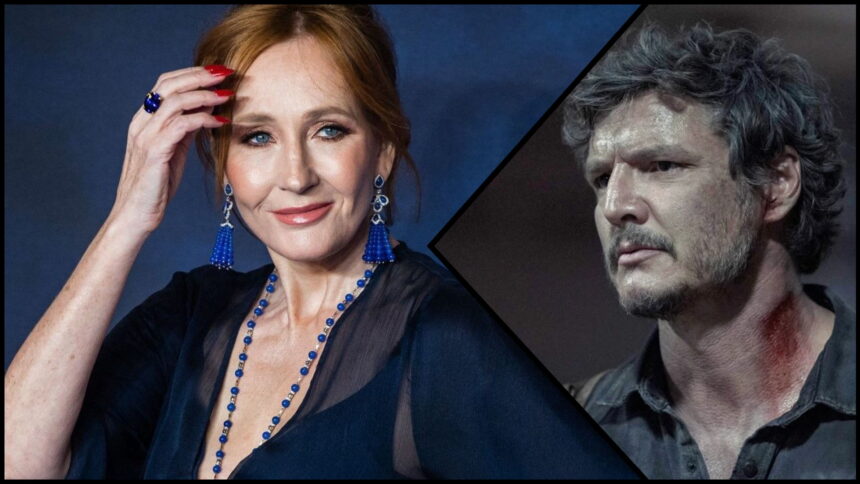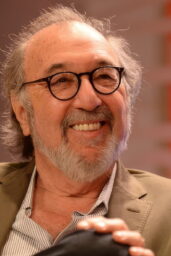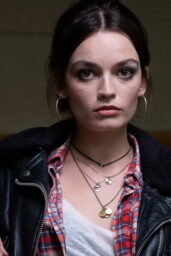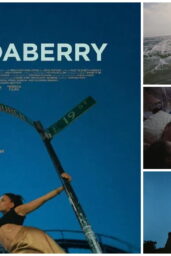Nothing says “controversy” like mixing magic with morality. Pedro Pascal, fresh from his Emmy-nominated role in The Last of Us, has cast a spell of his own—not on screen, but on social media, where he's calling for a boycott of all things Harry Potter. The reason? J.K. Rowling's recent celebration of a UK Supreme Court ruling that defines “woman” and “sex” strictly by biological terms, excluding transgender women. For Pascal, whose sister Lux came out as transgender in 2021, this was the final straw in a long-simmering debate about Rowling's views on gender identity.
The Spark: Pascal's Outrage
On April 24, 2025, Pascal took to Instagram, commenting on a post by activist Tariq Ra'ouf, who urged fans to boycott Harry Potter-related content to protest Rowling's stance. Pascal didn't mince words, calling Rowling's behavior “awful disgusting SHIT” and “heinous LOSER behavior” (The Hollywood Reporter). Ra'ouf's call was clear: “It has become our mission as the general public to make sure that every single thing that's Harry Potter-related fails.” This sentiment resonates with many who feel that supporting Harry Potter content indirectly endorses Rowling's views, especially since she's an executive producer on the upcoming HBO series.
Pascal's activism isn't new. He's been a vocal ally of the transgender community, often using his platform to advocate for trans rights. At the UK premiere of Thunderbolts on April 22, 2025, he wore a “Protect the Dolls” shirt, a term of endearment for transgender individuals, designed by Conner Ives to support Trans Lifeline (Yahoo Entertainment). His personal connection—his sister Lux's transition—adds weight to his stance, making his boycott call a deeply personal act of solidarity.
Rowling's Role: The Catalyst
Rowling's response to the Supreme Court ruling on April 16, 2025, was swift and celebratory. She posted a photo of herself with a cigar and drink on X, captioned, “I love it when a plan comes together,” a move many saw as tone-deaf and provocative (The Guardian). Reports suggest she financially backed For Women Scotland, the group that brought the legal challenge, with a £70,000 donation (People). Her actions have reignited a years-long controversy over her views on transgender issues, which have previously led to boycotts of Harry Potter merchandise and the Fantastic Beasts films.
Rowling's defenders argue she's advocating for women's rights, particularly in spaces like refuges and hospitals, where the ruling could allow exclusion of transgender women. Critics, including Pascal, see her stance as exclusionary and harmful, accusing her of using her platform to marginalize an already vulnerable community. The debate is far from black-and-white, but Rowling's celebratory X post poured fuel on an already polarized fire.
The Stakes: HBO's $2 Billion Gamble
HBO's Harry Potter reboot is no small endeavor. With a reported $2 billion budget spread over seven seasons, each adapting one of the original books, Warner Bros. is betting big on recapturing the magic that made the original films a cultural phenomenon (World of Reel). The series promises a fresh cast and a deeper dive into the wizarding world, but Pascal's boycott call threatens to cast a shadow over its launch.
Adding complexity is the casting of Paapa Essiedu as Severus Snape, a character traditionally portrayed as white. This decision has sparked debates about racial representation. Critics argue that altering Snape's race could introduce unintended dynamics to the story, while supporters view it as a step toward inclusive storytelling. Accusations of “wokeness” and “forced diversity” have surfaced, further polarizing fans before the series even begins production. The combination of Rowling's controversy and casting debates creates a perfect storm for HBO, which must navigate a minefield of public opinion.
Historical Context: Boycotts and Backlash
This isn't the first time a franchise has faced backlash due to its creator's or production's controversial actions. In 2020, Disney's Mulan faced boycotts after it was revealed that parts of the film were shot in Xinjiang, China, amid human rights abuses against the Uyghur population. The film's box office suffered, with many fans choosing to skip it in protest. Similarly, Rowling's earlier comments on transgender issues impacted the Fantastic Beasts series, with the third film, The Secrets of Dumbledore (2022), grossing only $405 million worldwide compared to the first film's $814 million, partly attributed to fan backlash.
The Harry Potter franchise has weathered storms before, but the current situation feels different. The scale of HBO's investment—$2 billion—is unprecedented for a TV series, and the cultural climate is more charged than ever. Consumers are increasingly using their purchasing power to make statements, from boycotting brands tied to political causes to calling out celebrities for their beliefs. Pascal's involvement, as a high-profile HBO star, adds a layer of irony and urgency, given his ties to the network via The Last of Us.
The Bigger Picture: Art vs. Artist
Pascal's boycott call highlights a growing trend: audiences are less willing to separate art from the artist, especially when the artist's views are seen as harmful. Cultural critic Sarah Ellis, writing for The Atlantic, notes, “The Harry Potter brand is at a crossroads. It must decide whether to distance itself from Rowling's personal views or embrace them, knowing that either choice could alienate a significant portion of its fanbase.” This dilemma isn't unique to Harry Potter. From Kanye West's music to Woody Allen's films, consumers grapple with enjoying art tied to controversial figures.
For HBO, the challenge is twofold: maintain the series' appeal to a global audience while addressing the ethical concerns raised by Rowling's involvement. Some fans argue that the story's themes of acceptance and courage should take precedence, while others, like Ra'ouf, believe that financial pressure is the only way to hold Rowling accountable. “Don't watch the show. Don't go to Universal. Don't buy a single Harry Potter thing ever,” Ra'ouf urged, a sentiment echoed by Pascal and other celebrities like Nicola Coughlan (Us Weekly).
What's Next for Harry Potter?
As the Harry Potter series gears up for production, the question looms: will Pascal's boycott call gain enough traction to impact its success, or will the allure of the wizarding world prove too strong? The franchise has a loyal fanbase, but the cultural landscape has shifted since the original films. Social media amplifies voices like Pascal's, and movements like #TransRightsAreHumanRights can quickly gain momentum. Yet, the series' massive budget and HBO's marketing muscle suggest it won't go down without a fight.
The casting controversies, particularly around Essiedu's Snape, will likely keep the series in the headlines, for better or worse. HBO may need to address these issues head-on, perhaps by emphasizing the series' commitment to diversity or distancing itself from Rowling's personal views. For now, the debate over art, morality, and money rages on, with no easy answers.
A Call to Reflect
Imagine if Dumbledore himself weighed in on this debate—what would he say about balancing personal beliefs with the stories we tell? The Harry Potter series has always been about choices, and now fans face one of their own: embrace the magic or take a stand. Will you watch the new series, or join Pascal's boycott? Share your thoughts below—this conversation is just getting started.
| Aspect | Details |
|---|---|
| Event | Pedro Pascal calls for boycott of Harry Potter content |
| Trigger | J.K. Rowling's support for UK Supreme Court ruling (April 16, 2025) |
| HBO Series Budget | ~$2 billion over 7 seasons |
| Key Casting | Paapa Essiedu as Severus Snape |
| Historical Parallels | Mulan (2020), Fantastic Beasts (2016-2022) |
| Cultural Impact | Debate over separating art from artist's views |












As Pedro Pascal calls for a boycott of something that seems unacceptable to him, there will also be someone who will do the same to him. It just looks like there will be a lot more whining, crying and wailing, just as it is characteristic of those from the transgender, LGBT, etc. population and their fans. So, I have nothing against expressing opinions, but calling the community to action results in a corresponding reaction!